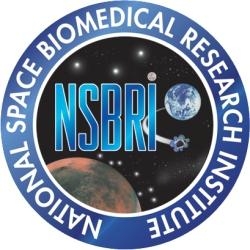Thu, Jun 21, 2012
Each Scientist Will Focus On A Specific Area Of Human Space Flight
The National Space Biomedical Research Institute (NSBRI) has enlisted seven of the nation's top scientists to serve as team leaders in its efforts to protect astronaut health during long-duration spaceflight. Each of the scientists will lead one of NSBRI's seven discipline area research teams focused on specific challenges faced by humans in space.

"NSBRI's position at the forefront of space biomedical research will be enhanced with these outstanding scientists serving as team leaders," said Dr. Jeffrey P. Sutton, NSBRI president and CEO. "Their expertise and knowledge will be beneficial to the Institute, NASA and human spaceflight in general. They will play an instrumental role in our efforts to overcome health challenges facing humans while in space and to improve health care on Earth."
The team leaders are responsible for reporting on their teams' research projects and working closely with the NSBRI Science Office and NASA to ensure alignment with operational needs. The team leaders' term is for three years and they must also have a currently funded NSBRI research project.
The NSBRI teams address space health concerns such as bone loss and muscle weakening, balance and orientation problems, neurobehavioral and psychosocial problems, radiation exposure, remote medical care and research capabilities, and habitability and performance issues during spaceflight.
The team leaders and their institutions are:
Cardiovascular Alterations Team
- Dr. Benjamin D. Levine, University of Texas Southwestern Medical Center at Dallas Human Factors and Performance Team
- Dr. Elizabeth B. Klerman, Harvard Medical School-Brigham and Women's Hospital Musculoskeletal Alterations Team
- Dr. Lori Ploutz-Snyder, Universities Space Research Association Neurobehavioral and Psychosocial Factors Team
- Dr. David F. Dinges, Perelman School of Medicine at the University of Pennsylvania Radiation Effects Team
- Dr. Ann R. Kennedy, Perelman School of Medicine at the University of Pennsylvania Sensorimotor Adaptation Team
- Dr. Charles M. Oman, Massachusetts Institute of Technology Smart Medical Systems and Technology Team
- Dr. Gary E. Strangman, Harvard Medical School-Massachusetts General Hospital
NSBRI, funded by NASA, is a consortium of institutions studying the health risks related to long-duration spaceflight and developing the medical technologies needed for long missions. NSBRI's science, technology and education projects take place at more than 60 institutions across the United States.
More News
Aero Linx: International Federation of Airworthiness (IFA) We aim to be the most internationally respected independent authority on the subject of Airworthiness. IFA uniquely combi>[...]
Ultrahigh Frequency (UHF) The frequency band between 300 and 3,000 MHz. The bank of radio frequencies used for military air/ground voice communications. In some instances this may >[...]
A Few Questions AND Answers To Help You Get MORE Out of ANN! 1) I forgot my password. How do I find it? 1) Easy... click here and give us your e-mail address--we'll send it to you >[...]
From 2019 (YouTube Edition): Learning To Paint Without Getting Any On Your Hands PPG's Aerospace Coatings Academy is a tool designed to teach everything one needs to know about all>[...]
Also: Sustainable Aircraft Test Put Aside, More Falcon 9 Ops, Wyoming ANG Rescue, Oreo Cookie Into Orbit Joby Aviation has reason to celebrate, recently completing its first full t>[...]
 ANN's Daily Aero-Linx (05.06.25)
ANN's Daily Aero-Linx (05.06.25) ANN's Daily Aero-Term (05.06.25): Ultrahigh Frequency (UHF)
ANN's Daily Aero-Term (05.06.25): Ultrahigh Frequency (UHF) ANN FAQ: Q&A 101
ANN FAQ: Q&A 101 Classic Aero-TV: Virtual Reality Painting--PPG Leverages Technology for Training
Classic Aero-TV: Virtual Reality Painting--PPG Leverages Technology for Training Airborne 05.02.25: Joby Crewed Milestone, Diamond Club, Canadian Pilot Insurance
Airborne 05.02.25: Joby Crewed Milestone, Diamond Club, Canadian Pilot Insurance



